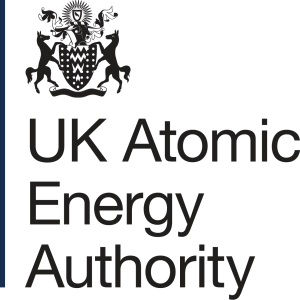I have been working as a patent examiner at the IPO since September 2017 within the Biotechnology and Pharmaceuticals examination group. Before joining the IPO I undertook a PhD looking at gene regulation in the bacteria that causes tuberculosis.
Why did you choose a job in this profession?
I enjoyed my time doing research during my PhD, but I felt I was getting more and more specialised in a specific area. I wanted a job that would allow me to work across the entire life sciences and biotechnology field and allow me to keep abreast the latest advances. I became increasingly interested in the field of intellectual property during my academic careers and found out more about the field by attending events such as the Biotechnology Young Entrepreneur Scheme business competition and doing an internship in the Research Innovation Services department of my university. My job allows me to see the latest advances in my field before they are published, and I find this incredibly fascinating. IP is a major driving force behind innovation and I am proud to be a part of the profession.
How did you get your job at the Intellectual property office? What was the application process like – any advice?
I applied through Civil Service Jobs. I filled in five competency-based questions alongside a template outlining my academic and professional background. The application process has changed slightly this year and now candidates are required to provide a 750 word personal statement alongside the template.
I was invited to a single interview, which consisted of some competency style questions, some technical questions and some interactive short tasks. The tasks are designed to assess your analytical skills and allow you to demonstrate your technical knowledge. There was also a short written task, which allows you to show your ability to write technical information in a clear and concise manner. After the interview I went on a tour of the office to see the facilities, found out about the benefits offered and was shown an overview of the IT systems used for examining.
The application process was different to many other jobs I have applied to because of the interactive tasks. I personally found it enjoyable because it was less about talking about examples of when you have shown a skill and more about demonstrating the skill.
What are your main duties?
I am an associate patent examiner, which means I am responsible for searching and examining patent applications. Examiners work within an examining group that reflects their technical background, primarily on patent applications within their technical field. However, when training we will often work on some simpler mechanical cases in order to get to grips with the legal aspects before working on applications from highly technical background. This is important for learning and training.
There are two main elements to the role:
Searching:
– The purpose of this search is to identify any relevant documents that were publicly available before the patent was filed.
– We have access to secure databases that allow us to search previously published patents or journal articles without worrying about disclosing the invention.
– We identify documents that either disclose the invention, render it obvious or are the closest technical background we could find.
– A report is produced for the applicant outlining the results of the search.
Examining:
– Assess the application to determine if it complies with The Patents Act 1977
– Often involves writing up the documents identified during the search stage in more detail as evidence that an invention is not new.
– We also assess other areas of the law, such as sufficiency, support, clarity and if the subject in the application is excluded from patentability.
– We will write up an examination report to send to the applicant which outlines the outstanding objections.
– Assessing if amendments overcome – if so, we grant the patent and if not we issue a further examination report.
Do I need a legal background to join? What happens when you first start as an examiner?
No – you need a degree (2.2 or above) in a STEM subject or equivalent technical experience. When I joined the office I went on a two month full-time training program with the other new examiners, comprised of lectures, tutorials and coursework. This was delivered by senior patent examiners. The course covered the basics of UK patent law and provided enough legal knowledge for me to get started on the job and real casework.
After the training course is complete, you will typically move to an examining group and start working on real cases. You will be assigned a revising officer (a senior examiner), who will go through your work with you and provide guidance. You revising officer will identify any further training that may be useful for you to attend and help you to understand legal aspects that you have not previously encountered.
You will have the opportunity to attend many other further training courses throughout your career as an examiner. After 2-4 years in the office examiners are offered the opportunity to do a Diploma in Intellectual Property Law.
As well as legal training, examiners are also encouraged to attend technical training to keep up to date with advances in their technical field. This may be attending conferences, lectures or product exhibitions and may take place internally or externally. For example, this year I attended a conference about using compounds from natural sources as therapeutics/pharmaceuticals.
Is it a 9-5 job?
Yes, but only if you want it to be! Examiners are required to work 37.5 hours per week, but can work anytime between 5am and 10pm. There are home working opportunities available to those that have been promoted to Patent Examiner (C1) grade or above.
What skills are useful in this profession?
– Degree-level knowledge or equivalent experience and an ability to apply that knowledge in practical situations.
– Analytical skills for technically complex scientific and/or engineering information and an ability to reach conclusions quickly, accurately and decisively.
– Communication – both oral and written.
Do you have any advice for anyone wanting to get into the industry?
Try to get some work experience if you can, but it is not essential. The IPO is now offering summer internships in Patent Examining. Keep an eye out for vacancies. An increasing number of patent attorney companies are also offering internships or open days now. Many recruiters appreciate it is difficult to gain experience in the IP field, so I would say it is helpful but not necessary to have experience.








